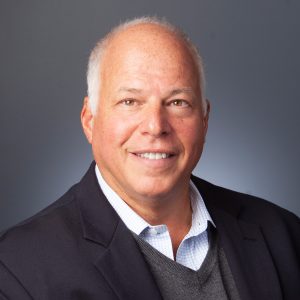Viewpoints from Craig Hasday
The press is full of headlines, fueled by celebrity endorsements, about the new miracle glucagon-like peptide 1 (GLP-1) weight loss drugs: Ozempic, Wegovy, and Mounjaro – and guess what? They work, with reports of as much as 15% of body fat loss achieved over a year or less. As we all know and have been preaching in our wellbeing initiatives, obesity poses significant health risks and financial burdens for individuals and employers alike. The average cost of GLP-1 weight loss medications, such as Ozempic, is approximately $14,000 per year. We also know that obesity often leads to co-morbid conditions, resulting in an average annual increase of $1,900 in medical costs. That’s the rub – the National Institute of Digestive and Kidney Diseases (NIDDK) estimates about 42% of U.S. adults aged 20+ are obese. That’s two in five potential GLP-1 patients spending $14,000 per year. Sure, they might save $1,900 in medical costs but the economics are not favorable. And doctors have suggested that the GLP-1 drugs are a lifetime commitment since they expect most patients will regain their weight once the drug effects wear off.
Employers are actively promoting a healthier and more productive workforce by addressing obesity-related challenges.
Some organizations are covering these drugs, but more – barring a diagnosis of diabetes – are taking a different tack to minimize the costs associated with reducing co-morbid conditions like obesity-related cardiac and musculoskeletal issues. For years, employers have offered various incentives to encourage employees to adopt healthier behaviors; including reduced insurance premiums, cash rewards, or discounts on weight management programs like Weight Watchers and Noom.
But the landscape has suddenly changed.
Almost everyone knows someone who has lost 17 pounds in the last two months, and they are about to learn the pitch, “Why do I have health insurance if it doesn’t cover these drugs?” or, “So, you want me to have a $60,000 knee replacement or $100,000 cardiac episode instead of paying for a drug that we all can see works?” No doubt, human resources teams need to be prepared for the onslaught of employees and/or dependents who have been turned down for these life-altering miracle drugs.
At EPIC, we are ramping up our wellbeing resources and looking to arm our employer clients with effective messaging to these concerned employees and their families.
A simple, “This just isn’t covered,” won’t quell the grumbling. EPIC believes wellbeing programs must evolve to have a better focus on behavior modification, nutrition education, and support systems in place to help individuals achieve sustainable weight loss. While GLP-1 drugs do work, employers must consider refining the alternatives to ensure employees have equitable access to other effective weight management tools.
Companies may also want to think about recommending different resources.
There are many new technology-based solutions that help individuals both manage and source GLP-1 medications, as scarcity is becoming an issue. And some manufacturers offer patient assistance plans. Found for Business, Noom for Work, and the telemedicine provider, Teladoc Health (which just announced its Provider-Based Care for weight loss and pre-diabetes coaching and medication) are aggressively supporting this new trend.
We released our new Market Pulse Survey on Trends in Wellbeing & Health Management yesterday.
Please participate to find out what more EPIC can do for you to strengthen your understanding of new trends in weight loss, GLP-1 medications, and other effective plan design and communication strategies.
Related Content
Products
Employee Benefits Consulting
Our dedicated benefits team is focused on delivering better outcomes – to both your benefits program and ...
Products
Wellbeing & Health Management
Our consultants help you create a strategy around health management that will impact your culture and your ...
Products
Pharmacy Solutions
Our Pharmacy Consulting Practice helps companies navigate the unique complexities of expertly managing the ...



